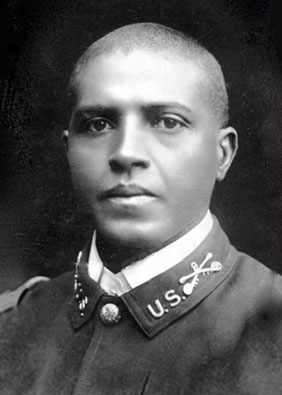Charles was born into slavery in Kentucky in 1864, but when the Civil War ended, his family moved to Ripley, Ohio, where he graduated at the top of his high school class.
He helped pave the way for African Americans in the United States military, becoming only the third African American to graduate from West Point and receiving a commission as a second lieutenant in the Ninth Cavalry, the famed Buffalo Soldiers. He became the first black officer in the regular army to be promoted to the rank of captain and led his troops with distinction in the Philippines.
Charles later headed the new military sciences department at Wilberforce College. He became the first black superintendent of a national park, when he started work at Sequoia National Park in California’s southern Sierra Nevada Mountains in 1903. In 1916, the NAACP awarded him the Spingarn Medal for his achievements in Liberia and the U.S. Army.
Despite being highly decorated, Charles was forced to retire as a Colonel from the Army in 1917. He was recalled to duty with the Ohio National Guard two years later and was named military attaché to the U.S. Embassy in Liberia where he passed away in 1922. At the time of his death, he was the highest-ranking African American officer in the Army.
In 1974, the Wilberforce, Ohio, home where Charles was raised became a national historic landmark. In 2013, it became part of the National Park System, named the Charles Young Buffalo Soldiers National Monument.

